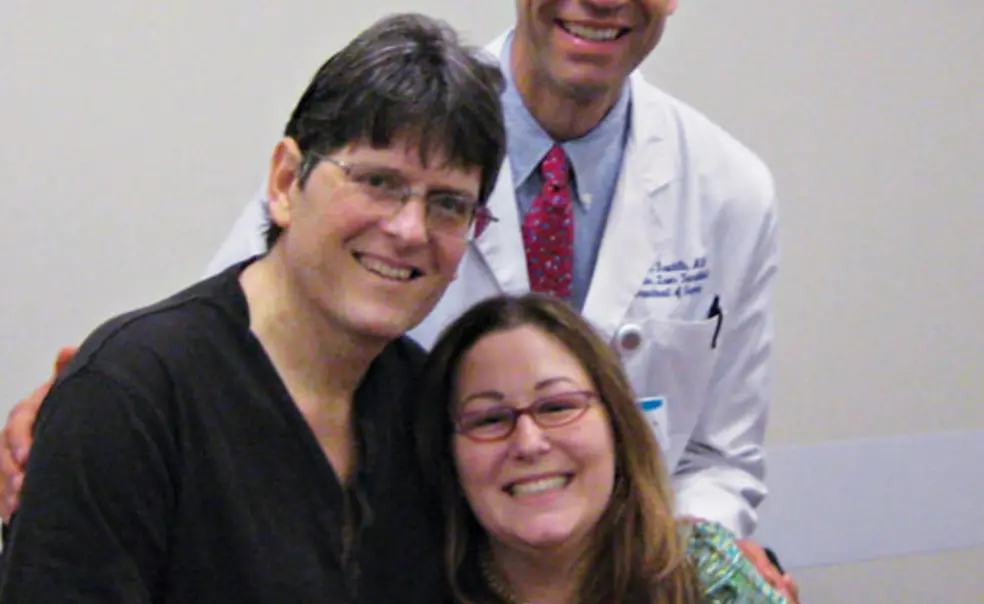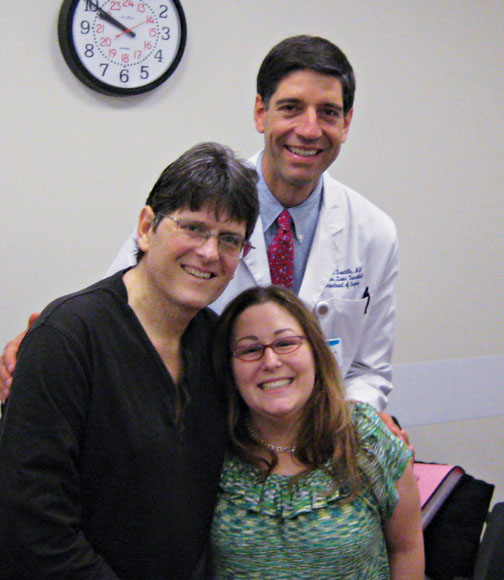Thanks to class network, alum gets lifesaving gift
Massie was the subject of a PAW cover story in June 2005 that recounted his teaching and activism despite a lifetime of illness. A hemophiliac who received countless blood transfusions, Massie received HIV-positive blood the year he graduated from Princeton. Despite his HIV infection, his immune system kept him from developing any symptoms of AIDS — a case that received worldwide medical attention.
Another blood transfusion carried hepatitis C, which led to potentially deadly advanced cirrhosis of the liver. Though Massie had become an Episcopal priest, run for lieutenant governor in Massachusetts, taught at Harvard Divinity School, and led a nonprofit group, the onset of liver disease, with its profound fatigue, forced him to retreat from most activities.
For nearly seven years Massie was on regional lists to receive a transplanted liver, the only way to reverse the debilitation caused by a buildup of toxins in his blood. More recent efforts by Massie and his wife, Anne Tate ’78, focused on trying to locate a living donor who would volunteer to share part of a healthy liver.
That’s when class president Gwen Feder ’78 entered the picture. In an e-mail early this year, she described Massie’s illness and asked members of the Class of ’78 to consider “a potentially life-changing act of generosity on behalf of one of our classmates,” spelling out details of what a living-donor liver transplant would entail. (“I hardly thought I would use my term as class president for things like this, but what are Princeton classmates for?” she wrote at the end of her message.)
According to Massie, “a touchingly large group of classmates looked into this, which was a huge emotional boost for me.”
When Davison Douglas ’78, a roommate of Massie’s at Princeton, read the e-mail, he forwarded it to classmate Dr. Stuart Knechtle, who had become head of the liver transplant program at Emory University Hospital in Atlanta just months earlier. Knechtle contacted Massie, whom he had known “pretty well” at Princeton, and offered his help; Massie’s medical records then were sent down for review by specialists at Emory.
As it happened, Massie was a blood-type match for a young woman from Boca Raton, Fla., who also was awaiting a liver transplant. Jean Handler, 24, suffered from a genetic abnormality that prevented her body from breaking down certain amino acids found in most foods. And while a new liver would cure her condition, a transplant of her liver would not carry her disease to the recipient. As she waited for a transplant, Handler agreed to be a donor as well. Fewer than 100 such “domino liver transplants” have been performed since the first procedure was done in 1996.
Handler was assigned high priority for a transplant in the region, making it likely that a liver soon would become available for her, and in late June Massie and his wife were urged to travel to Atlanta. In less than two weeks, the call came for Massie and Tate to head for the hospital. In a July 10 procedure lasting more than 10 hours, two separate surgical teams worked in adjoining operating rooms on Handler and Massie. Both transplants were successful.
“Both patients are now, in effect, living with new, perfectly functioning livers,” Knechtle said. Massie’s hemophilia was cured because his transplanted liver makes factor VIII, the protein missing from hemophilia patients and required for normal control of blood clotting. Handler’s condition was cured as well.
It was only when the two patients met for the first time a few days after the surgery that they learned each had Princeton connections: Handler is the daughter of Henry Handler ’75.
Both Massie and Knechtle had special praise for Feder’s role in communicating with classmates for a purpose beyond traditional class announcements. “The huge investment Princeton makes in making sure that we remain in contact with each other after our undergraduate experience has unexpected consequences,” Massie said.













No responses yet